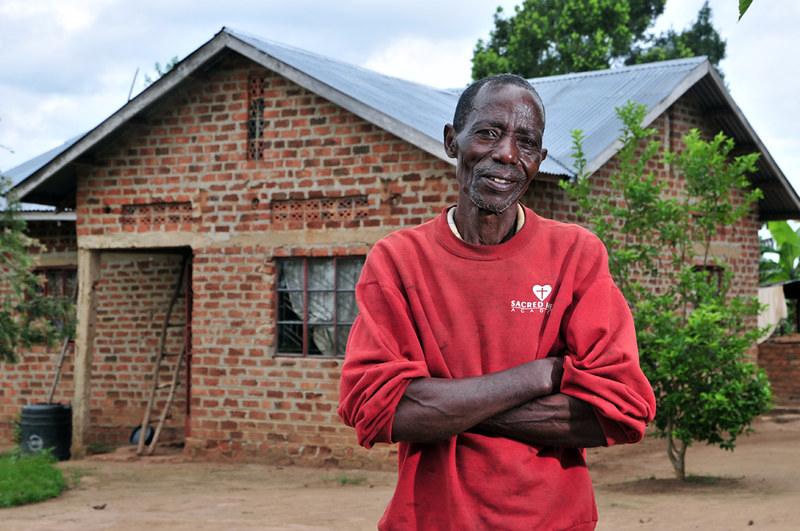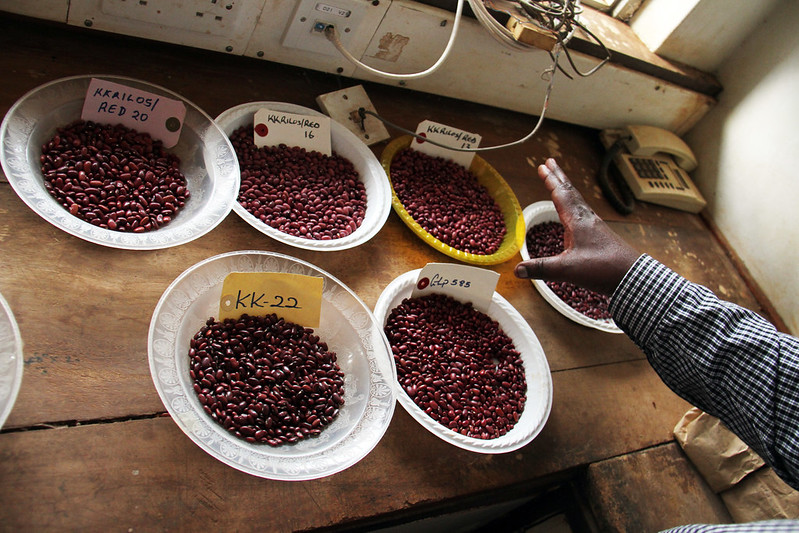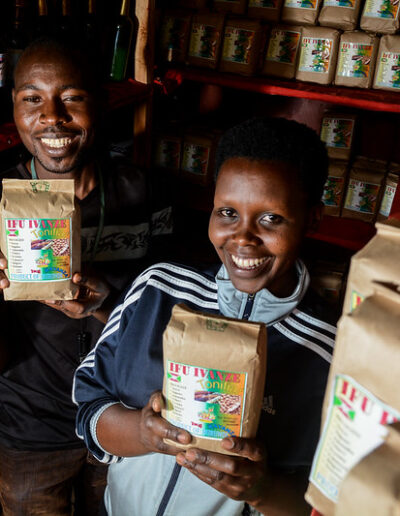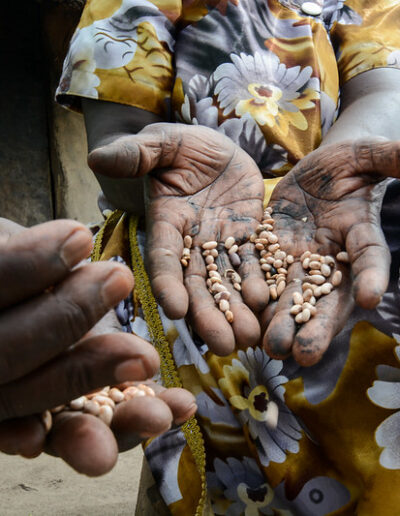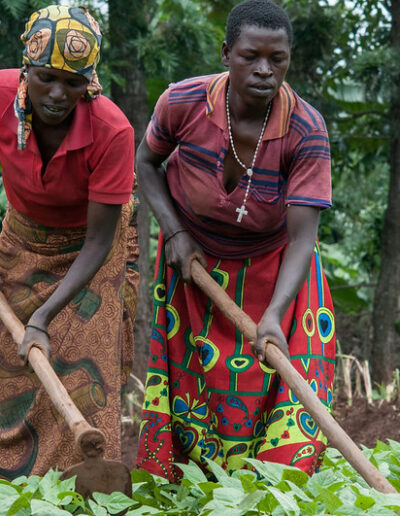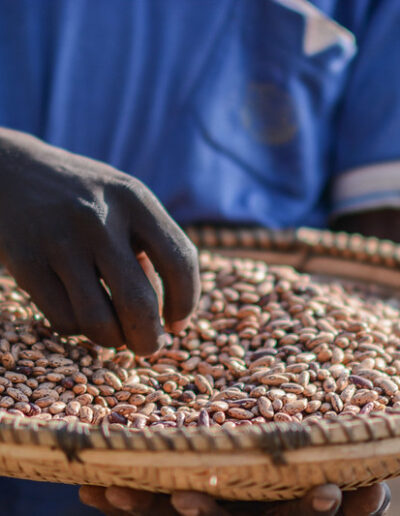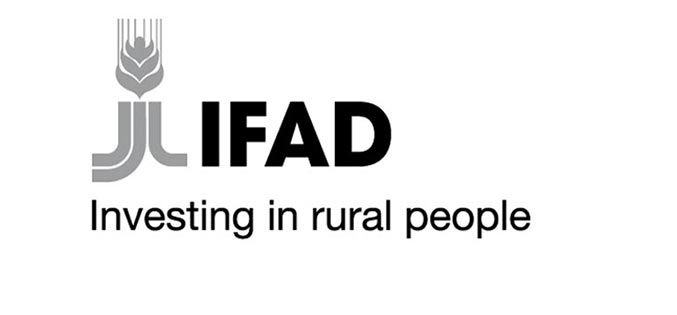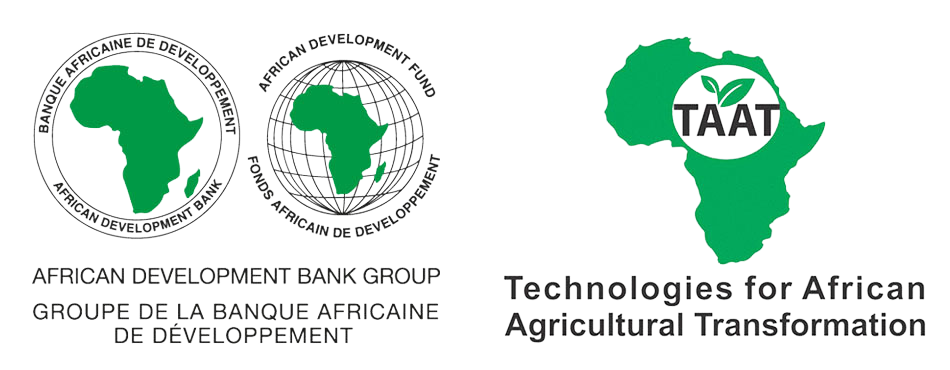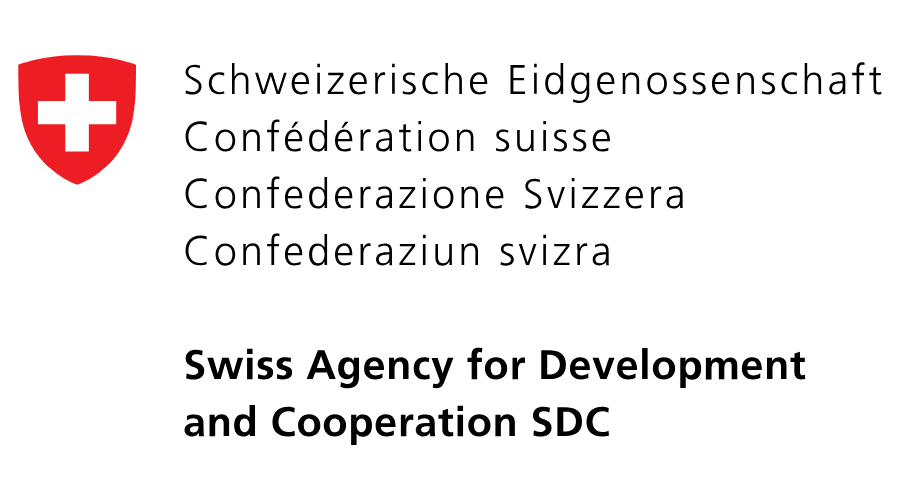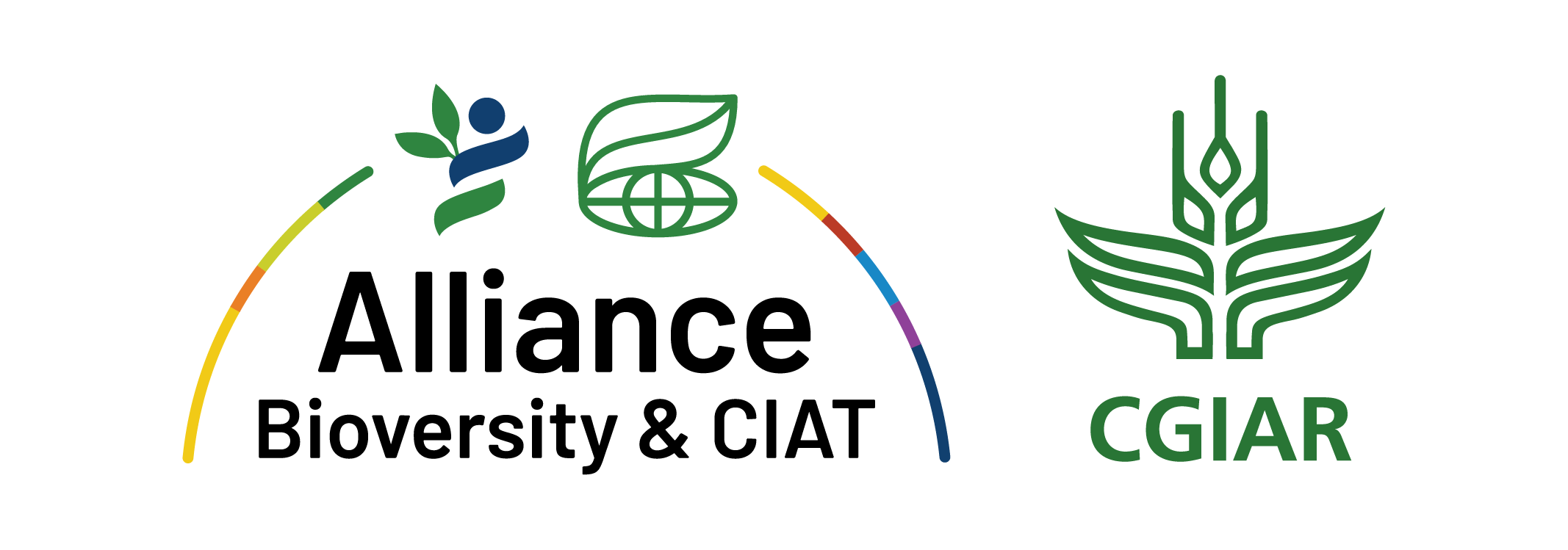About Linkin Farmers To Markets
Billions of people all over the world eat beans. That’s a lot of potential customers – and income – for bean farmers in Africa, if only farmers could reach them.
Most farmers often struggle to sell their products. Many are not linked to markets for a variety of reasons, such as remoteness, low production, low farm-gate prices, poorly organised markets, and lack of information and marketing know-how.
For farmers to increase their incomes, they must have access to sustainable markets.

Bean Corridors
PABRA has adopted a bean corridor approach in its bean work across Africa. Corridors are the major bean production, distribution and consumption routes through which beans are traded nationally and regionally. These areas of bean intensification have the potential to generate significant economic benefits, spanning regional value chains and connecting economic actors through large scale or intensive production of beans for commercial purposes.
A number of bean corridors have been identified across the continent, where those who produce a surplus of beans trade with those that have bean deficits, meeting their shortfalls. These trade flows include movements from countries such as Ethiopia, Tanzania and Uganda to others such as Kenya, South Sudan and South Africa.
Demand driven
Beans are one of the most traded commodities in many African countries. And like all trade, bean markets are driven by demand and supply forces. Farmers can’t sell their produce if they don’t know what buyers want or if no-one knows, or wants, what they have.
Through PABRA’s breeding program, we ensure that new varieties meet various market requirements. And then we tackle the obstacles that prevent bean farmers from selling their products year in year out and achieving the best price possible.
To address the market demands better, PABRA works across different bean products targeting different markets which serve a diverse range of consumers including urban and peri-urban, as well as rural.
-
Bean Products:
- Dry beans are the bean producers’ bread and butter, helping to meet their food security and income needs. They are the most popular beans in most countries, accounting for more than 80% of bean sales.
- Niche/specialised beans serve a small number of internal, regional or international buyers. They include canning beans, snap or French beans, and value-added bean products such as bean based flours, bean cookies and snacks. Products that meet niche demands often fetch a premium price and farmers that specialise in such products are able to earn, on average, higher returns. Export markets are also considered niche due to their relatively small size in most African countries – at the moment.
-
Bean Markets:
Bean markets are closely aligned to bean corridors:
- Local and national markets in towns, cities and other urban centres are one of the easiest markets for farmers to reach and often constitute the largest bean market in most PABRA countries. To access these markets, farmers and other actors, such as seed multipliers and input traders, need to organise themselves if they are to equitably benefit. Internal bean markets are the most important as they absorb most of the beans produced by farmers.
- Regional or cross border markets. Regional markets are the second most important bean markets for many farmers in the PABRA countries.
Breaking down market barriers
Farmers face a variety of barriers that prevent them from accessing sustainable and profitable markets. PABRA addresses these barriers by:
- Conducting Market research: Before we can remove the obstacles, we need to understand them. Every country and market has its own unique challenges. Through market research, we are able to understand these challenges and develop technologies to address them. By sharing research results, key market actors can work to reduce imbalances.
- Informing farmers and bean value chain actors: Farmers and traders need information about different markets to be able to access and relate to them. We use a variety of methods to deliver the right information to smallholder farmers at the right time, including demonstration plots, exhibitions, brochures, and media promotions on radio and TV. In many countries, mobile phones and text messaging are becoming increasingly important for sharing information on bean technologies and markets with farmers. As well as sharing our own market information with farmers, we create linkages to market information service providers to ensure farmers and bean traders are kept informed about available national, regional and international market opportunities.
- Organising farmers (bean platforms): It is costly to do business with dispersed small scale farmers, which may prevent traders and buyers from directly engaging with farmers. To reduce some of these transaction costs, PABRA supports the development of bean platforms. Bean platforms are networks of stakeholders, including farmers, traders, seed producers and policymakers, brought together to remove the bottlenecks that hinder bean production and marketing, ranging from seed and variety development to consumption. Platforms put solutions in the hands of the users. They are a faster way of redressing challenges facing all actors within the bean value chain and assure farmers a market for their produce. Platform stakeholders are facilitated to deliberate on issues and bottlenecks as well as opportunities, so that they can craft their own solutions to the challenges. A number of countries, including Madagascar, Uganda, Rwanda, Zambia, Cameroon and Tanzania have established successful bean platforms to promote bean production and marketing. In Rwanda, the approach has been promoted to support technology promotion at district level in order to fast track technology uptake by farmers.
- Developing private sector partnerships: In order to create sustainable impact, PABRA supports national agricultural research systems to forge partnerships with the private sector in agricultural research and development to stimulate greater investment. The partnerships cut across the entire value chain, from breeding to markets, providing channels for farmers to access new bean varieties, as well as adding value to bean products through processing and marketing opportunities. Private sector partnerships have been established across most PABRA countries, ranging from seed businesses to grain enterprises.

